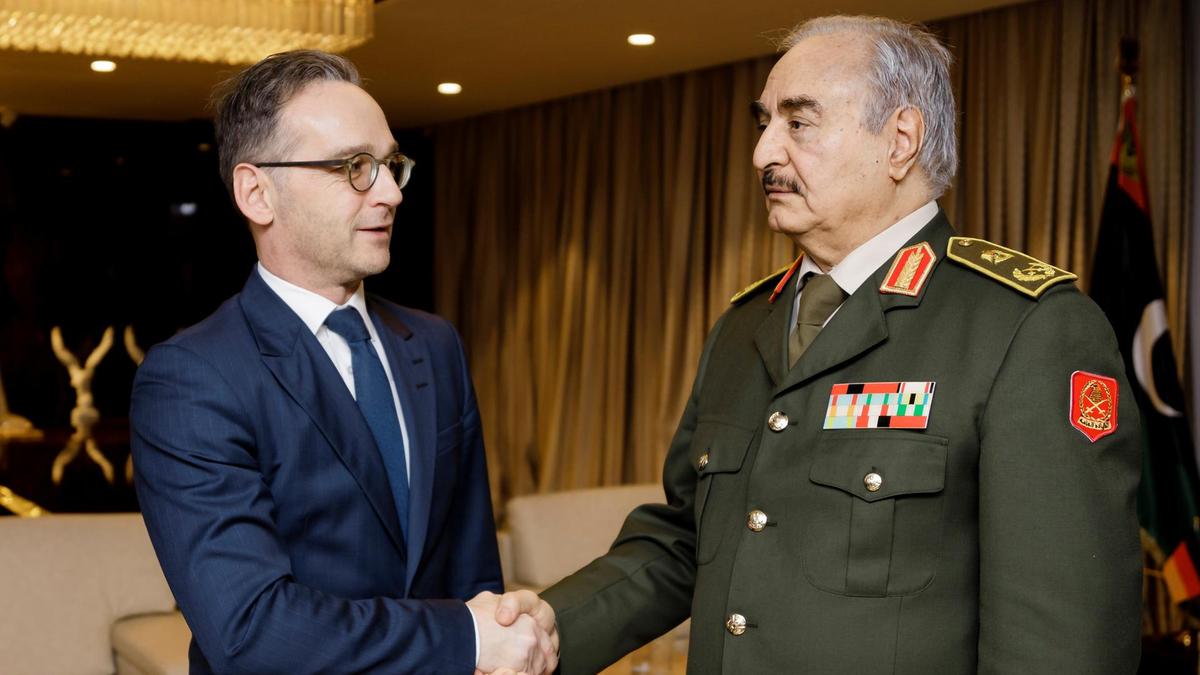Global leaders meet in Berlin in bid to end Libyan war

A few minutes every morning is all you need.
Stay up to date on the world's Headlines and Human Stories. It's fun, it's factual, it's fluff-free.
Rival camps in the Second Libyan Civil War met on Sunday, January 19 in Berlin, Germany, discussing the possibility of ending the conflict. Fayez al-Sarraj, head of the elected government, and Khalifa Haftar, commander of the Libyan National Army (LNA), were joined by the United States, Russia, Turkey, France and Italy at the talks.
The LNA is reportedly the main aggressor, with Haftar’s forces storming into the capital, Tripoli, in an attempt to overthrow the government in April 2019.
Ever since Libya’s longtime leader Muammar Gaddafi was ousted and killed during a NATO-backed uprising in 2011, the country has faced an ongoing leadership crisis. Gaddafi was deemed by many as a dictator whose administration reportedly violated human rights and backed global terrorism. However, while ruling the country for 42 years, Gaddafi also often managed to keep internal factions in check.
Since his death, Libya has been unable to form a stable government, with the country now split between the elected government and the LNA. In a recent escalation, groups aligned with Haftar seized several large oil production bases in the eastern and southern parts of the county in an attempt to choke oil revenues funneled toward the capital.
An international conflict
Since the conflict over Libya began, several international players have stepped in. Haftar is reportedly backed by the United Arab Emirates (UAE), Egypt and Jordan. Recently, Russian mercenaries also arrived on the scene, helping the LNA gain ground in Tripoli.
The elected government, backed by the United Nations (UN), is also reportedly supported by Turkey, Qatar and Italy. Last week, Turkey’s President Recep Tayyip Erdogan said he would send Turkish troops into Libya to help support Tripoli “in order for the legitimate government in Libya to remain standing.”
As tensions intensify, the focus of Sunday’s meetings was to implement a lasting ceasefire in order to resume peace talks. For now, there seem to be no plans to broker any power-sharing agreements. Haftar, although agreeing to the talks, indicated he is unwilling to accept any deal that fails to give him full control of the country.
Libyan people dissatisfied
Since the conflict began, some 140,000 Libyans have been displaced. The country’s crude oil output – a major source of income for the local economy – has been halved.
Some Libyans have grown weary in the midst of perpetual conflict – including the fighters. Salem Bin Ismail, a commander supporting the government in Tripoli, expresses his dissatisfaction with the endless fighting: “We have had chaos since 2011. I hope this is the last of the wars. We fought against Gaddafi to get rid of military control. Circumstances led us to fight again. We want ballot boxes and elections and civilian rule. We believe in democracy.”
[article_ad]




Comments ()